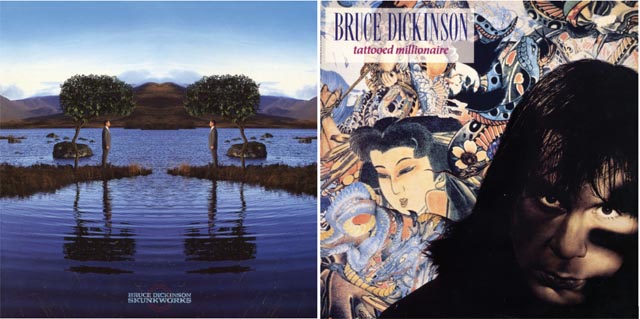 If you’re an All Shall Perish fan that torrented the band’s 2011 album, This is Where it Ends, you may have found yourself on the receiving end of a lawsuit – one the band, their management, and presumably their label’s president knew nothing about. On April 20, a lawsuit was filed in a Miami courthouse by a Panamanian company called World Digital Rights that licenses the band’s songs. The suit asks for $150,000 in damages plus court costs for each of the anonymous 80-100 fans, and threatens to name them. TorrentFreak assumes that scared defendants will likely settle out of court with World Digital for several thousand dollars each.
If you’re an All Shall Perish fan that torrented the band’s 2011 album, This is Where it Ends, you may have found yourself on the receiving end of a lawsuit – one the band, their management, and presumably their label’s president knew nothing about. On April 20, a lawsuit was filed in a Miami courthouse by a Panamanian company called World Digital Rights that licenses the band’s songs. The suit asks for $150,000 in damages plus court costs for each of the anonymous 80-100 fans, and threatens to name them. TorrentFreak assumes that scared defendants will likely settle out of court with World Digital for several thousand dollars each.
Of course, suing your fans, regardless of whether they downloaded your music illegally or not, doesn’t go over very well – just ask Metallica. But before the backlash against All Shall Perish could coalesce into a full-blown movement, just about everyone involved – except for World Digital Rights – claimed that they had no knowledge that their fans were about to be sued. The California deathcore band’s manager, Ryan Downey, told TorrentFreak that the band wasn’t consulted, and that Nuclear Blast’s German label president and US label manager also claim ignorance. However, according to the lawsuit, Nuclear Blast signed over the rights to This is Where it Ends to World Digital Rights on March 12, 2012, making them the exclusive licensee of the album.
“The band, their lawyer and myself were totally shocked (and appalled) by this,” Downey tells Metal Insider. “When I called our US label manager on Friday, he was with the label president and they were both surprised and had no idea about this company. We’ll see what’s at the bottom of this soon hopefully.”
It’s a little odd that the first action against music fans since the RIAA abandoned their anti-filesharing campaign in 2008 should come against All Shall Perish. While This is Where it Ends sold pretty respectably when it came out last year (about 8,500 its first week), it’s not like the band are selling at Metallica levels. Perhaps the band might be a test case for further potential lawsuits against people that illegally torrent. Regardless, it comes down to accountability. If Nuclear Blast signed over the digital rights to the album, they should at least admit that they did it, whether they knew World Digital Rights would be going after those illegally downloading or not. And why would a label sign over digital rights to a third party less than a year after the album came out? At least the band beat everyone to the punch by getting out in front of the story. But this should be viewed as a cautionary tale that a new era of bands suing their fans could be starting up – even if the bands don’t know anything about it.












